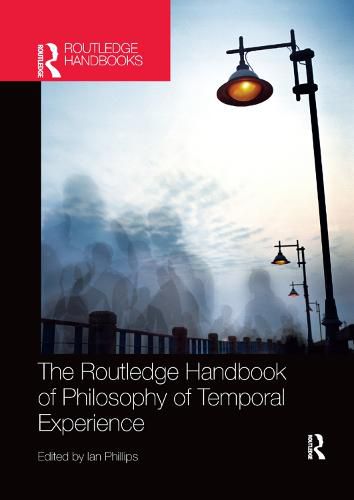Readings Newsletter
Become a Readings Member to make your shopping experience even easier.
Sign in or sign up for free!
You’re not far away from qualifying for FREE standard shipping within Australia
You’ve qualified for FREE standard shipping within Australia
The cart is loading…






Experience is inescapably temporal. But how do we experience time? Temporal experience is a fundamental subject in philosophy - according to Husserl, the most important and difficult of all. Its puzzles and paradoxes were of critical interest from the Early Moderns through to the Post-Kantians. After a period of relative neglect, temporal experience is again at the forefront of debates across a wealth of areas, from philosophy of mind and psychology, to metaphysics and aesthetics.
The Routledge Handbook of Philosophy of Temporal Experience is an outstanding reference source to the key debates in this exciting subject area and represents the first collection of its kind. Comprising nearly 30 chapters by a team of international contributors, the Handbook is organized into seven clear parts:
Ancient and early modern perspectives Nineteenth and early twentieth-century perspectives The structure of temporal experience Temporal experience and the philosophy of mind Temporal experience and metaphysics Empirical perspectives
Aesthetics
Within each part, key topics concerning temporal experience are examined, including canonical figures such as Locke, Kant and Husserl; extensionalism, retentionalism and the specious present; interrelations between temporal experience and time, agency, dreaming, and the self; empirical theories of perceiving and attending to time; and temporal awareness in the arts including dance, music and film.
The Routledge Handbook of Philosophy of Temporal Experience is essential reading for students and researchers of philosophy of mind and psychology. It is also extremely useful for those in related fields such as metaphysics, phenomenology and aesthetics, as well as for psychologists and cognitive neuroscientists.
$9.00 standard shipping within Australia
FREE standard shipping within Australia for orders over $100.00
Express & International shipping calculated at checkout
Experience is inescapably temporal. But how do we experience time? Temporal experience is a fundamental subject in philosophy - according to Husserl, the most important and difficult of all. Its puzzles and paradoxes were of critical interest from the Early Moderns through to the Post-Kantians. After a period of relative neglect, temporal experience is again at the forefront of debates across a wealth of areas, from philosophy of mind and psychology, to metaphysics and aesthetics.
The Routledge Handbook of Philosophy of Temporal Experience is an outstanding reference source to the key debates in this exciting subject area and represents the first collection of its kind. Comprising nearly 30 chapters by a team of international contributors, the Handbook is organized into seven clear parts:
Ancient and early modern perspectives Nineteenth and early twentieth-century perspectives The structure of temporal experience Temporal experience and the philosophy of mind Temporal experience and metaphysics Empirical perspectives
Aesthetics
Within each part, key topics concerning temporal experience are examined, including canonical figures such as Locke, Kant and Husserl; extensionalism, retentionalism and the specious present; interrelations between temporal experience and time, agency, dreaming, and the self; empirical theories of perceiving and attending to time; and temporal awareness in the arts including dance, music and film.
The Routledge Handbook of Philosophy of Temporal Experience is essential reading for students and researchers of philosophy of mind and psychology. It is also extremely useful for those in related fields such as metaphysics, phenomenology and aesthetics, as well as for psychologists and cognitive neuroscientists.